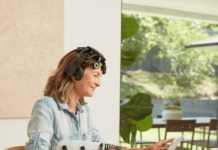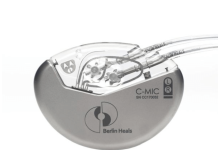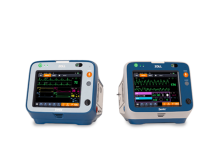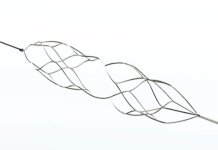CorWave, a medical device company, announces the world’s first implantation in a patient of its Left Ventricular Assist System (LVAS), the first heart pump based on breakthrough wave membrane technology. The procedure was performed by the team at St Vincent’s Hospital in Sydney, Australia. This implantation represents a major technological milestone in the field of durable mechanical circulatory support, 27 years after the first use of a durable rotary pump – a technology that has since become the standard of care.
Inspired by the swimming motion of aquatic animals, CorWave’s undulating membrane technology, developed since 2012, aims to preserve the physiological balance of the cardiovascular system, unlike currently used rotary pumps that deliver a continuous and fixed flow rate. The device has been designed to preserve the effects of the heartbeats on the vasculature and work in synchrony with the heart to preserve its function and structures. It can also automatically adjust blood flow according to the patient’s activity, whether at rest or in motion.
Related: Circa completes limited launch of transseptal access system
CorWave’s state-of-the-art innovation has three clinical objectives. First, to limit serious complications associated with current devices, such as strokes, bleeding, heart failure, or valvular diseases. Second, it aims to improve patients’ quality of life with a broader resumption of daily, professional, and social activities. Finally, it should promote heart recovery, which is possible in certain patients.
This first patient successfully met the primary endpoint of 30-day survival without device-related complications. Suffering from advanced heart failure, he is doing well and has been discharged from the hospital. He himself reports feeling much better than before his surgery and experiencing no particular discomfort. He no longer experiences undue fatigue or shortness of breath, which are typical symptoms of advanced heart failure. The teams at CorWave and St Vincent’s Hospital, a world center of excellence specialized in research on the physiological impact of heart pumps, have observed the proper functioning of the device and the patient’s post-operative recovery.
Additional implantations will be necessary to more comprehensively evaluate the safety, performance, and clinical benefits of this technology as part of the ongoing clinical study. CorWave is continuing this study in accordance with regulatory requirements and good clinical practices, in close collaboration with the participating medical teams.
Louis de Lillers, CEO of CorWave, says: “This world first is a success and results from more than a decade of determined research and engineering. We owe this moment to the trust of the patient, the excellence of the team at St Vincent’s, the perseverance of our team, investors and partners who have backed CorWave’s vision over the years. We look forward to writing a new chapter in circulatory support alongside the scientific and medical community, with the shared goal of significantly improving the lives of advanced heart failure patients.”
Heart failure affects more than 64 million people worldwide, and several hundred thousand patients could eventually be candidates for durable circulatory support.
By offering an alternative based on breakthrough technology, CorWave confirms its ambition to become a reference player in the field of implantable cardiac assist devices.




